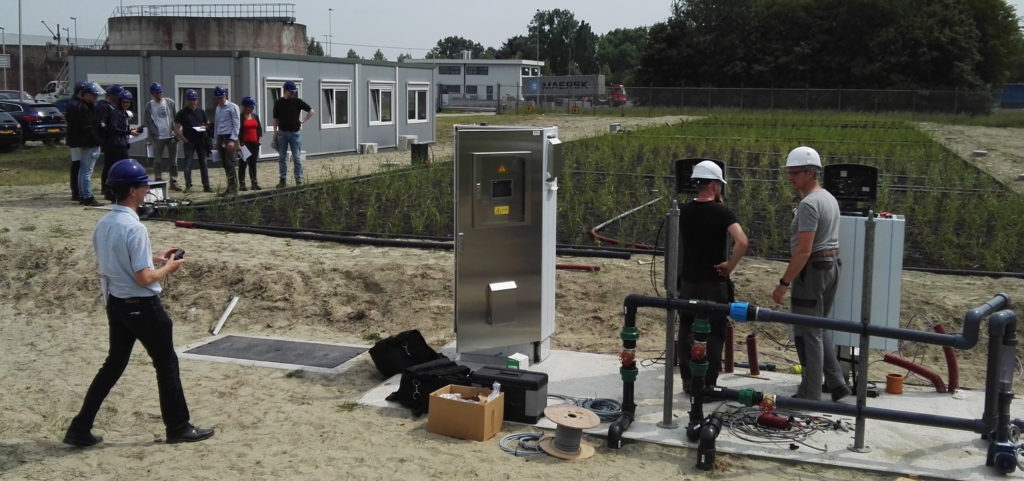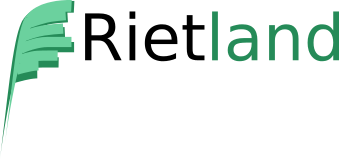In 2019, Rietland installed two aerated reed beds on the pilot location of chemical company Dow in Terneuzen. One reed bed purifies Dow's treated wastewater. The other wetland purifies the effluent from RZWI Terneuzen. Both Phytoair systems can also be connected in series and treat mixed feed water. The effluent from the reed beds is pumped towards a pilot hall where different technologies - ultra filtration, ion exchange and reverse osmosis - are tested with the aim of upgrading it to production water for Dow. Both 350 m² Phytoair systems are equipped with various in-line sensors to monitor the systems.

In times of water scarcity, industry is the first to be disconnected from the water supply network. The water quality of the pumped up groundwater in coastal areas (too saline) is not sufficient for industrial applications. That is why Dow looked for an alternative water supply. Niels Groot: “Currently 40% of Dow's water consumption (reuse of waste water and steam condensate) is being recovered. We would like to increase this to be as little dependent as possible on other sources. If the pilot of this reed bed is successful, we want to build a large reed bed of 6 to 10 hectares in order to recuperate an extra 4 million m³ of water (= average annual consumption of 18,000 families). ”
Evides industry water also participates in this project. Otto Schepers indicates that “nutrient-rich water causes growth of micro-organisms on the membranes. As a result of the pre-purification of the water in the wetland, the feed water for the membranes will be less nutrient-rich and more stable, so that the downstream processes will perform better. We expect the membranes to be cleaned a lot less often. This means less waste of energy and chemicals in the overall water treatment process. ”
“A chemical company like Dow needs a stable supply of high quality water. The wetland achieves this with a minimum of maintenance (once a year rinsing pipes and checking technical equipment) and low cost operation. After all, the staff of the wetland consists of the micro-organisms and reed plants, ”says Dion van Oirschot of Rietland.
The reed beds are monitored for two years by professor Diederik Rousseau of Ghent University with doctoral student Hafiz Khan. In several places of the Phytoair oxygen measurements are taken and in-line measurements continuously monitor the concentrations of ammonium, COD and nitrate. Sampling and analysis of influent and effluent on standard parameters and micropollutants are carried out by students of the Water Technology research group at Hogeschool Zeeland and specialized laboratories. The partners of this project are Dow benelux, Evides industry water, Scheldestromen Water Board, Ghent University, Hogeschool Zeeland and Rietland.

